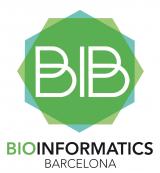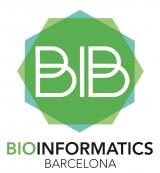
21/07/2014
Identificats prop de 200 gens que han evolucionat més ràpid en els humans que en altres primats
Un estudi realitzat per investigadors del grup de Genòmica Evolutiva del GRIB (IMIM-UPF) ha utilitzat noves dades genètiques humanes per conèixer més sobre les mutacions que podrien haver conferit un avantatge selectiu als essers humans, en els darrers 5 milions d’anys d’evolució. Això permet als investigadors obtenir una nova visió de l’evolució humana. Els resultats d'aquest estudi s’acaben de publicar a la revista BMC Genomics.
Segons Mar Albà, professora ICREA i coordinadora del grup de recerca en Genòmica Evolutiva del GRIB “Aquesta variació ens dóna una mesura de la proporció de canvis d'aminoàcids que una proteïna típicament té mentre conserva la seva funció. Un cop tenim aquest valor, podem contar les diferències amb la proteïna ancestral d’humans i ximpanzés i si trobem que hi ha hagut més canvis dels esperats és perquè la funció de la proteïna possiblement ha canviat durant l’evolució dels humans”.
Article de referència:
Gayà-Vidal M & Albà MM (2014). Uncovering adaptive evolution in the human lineage. BMC Genomics 15:599. http://www.biomedcentral.com/1471-2164/15/599.

Thesis defence of Ramon Guixà: "Modeling the interplay between membrane lipids and GPCRs"
On July 23rd, Ramon Guixà, member of the PharmacoInformatics group of GRIB (IMIM-UPF) will defend his thesis at 10.00 at the Xipre room of the PRBB. You are all invited to this event.

El repte de la ingent quantitat de dades que generem és gestionar-les i interpretar-les
Què és el Big Data? Quina relació té amb la recerca en les ciències de la vida? Quin són els reptes i els perills d'aquest trànsit complex i quantiós que la tecnologia imposa? Ferran Sanz, director del GRIB i director científic del Bioinformàtics Barcelona, BIB , explica la importància d'aquesta plataforma de recent creació per concentrar el potencial bioinformàtic del país i projectar-lo a l’exterior.
Per veure el video clica aqui

09/05/2014
GPCR Spring Conference 2014 at PRBB
Understanding the complex nature of G protein-coupled receptors (GPCR) functionality and exploiting this knowledge for the design of new GPCR modulators has been the central focus of GPCR Spring Conference 2014 organized by the GRIB researchers Jana Selent and Maria Martí at Barcelona Biomedical Research Park (Barcelona) from 28-30th April.
The conference program attracted more than 150 international experts specialized in state-of-the-art computational and experimental methods to explore this receptor family. Special emphasis has been given to contributions of junior scientists in the form of short talks and posters. Most importantly, the event has succeeded in promoting and strengthening the GLISTEN community – a recently established European multidisciplinary network of researchers investigating G protein-coupled receptor signalling.

23/4/2014
Bioinformatics Barcelona ja aplega més de 40 entitats entre universitats, centres de recerca i empreses
La plataforma Bioinformatics Barcelona (BIB) va presentar ahir, 22 d'abril, el seu Pla Estratègic, en un acte presidit per Antoni Castellà, secretari d’Universitats i Recerca, a CaixaForum Barcelona. El BIB té el suport de 44 entitats del sistema de recerca i industrial català, entre les quals estan l’IMIM i la UPF.
El Pla Estratègic defineix línies d’acció ens els àmbits de la visibilitat, la formació, la col·laboració interna i externa, i la recerca i transferència, com a prioritats estratègiques. Aquest pla concreta les accions a fer en els propers anys i és el resultat del procés de consulta i diàleg portat a terme amb tots els sectors implicats en el camp de la bioinformàtica, entesa com a l’aplicació de les ciències computacionals per al tractament de dades biològiques.
El BIB està presidit per Ana Ripoll, ex rectora de la UAB, i compta amb la direcció científica de Ferran Sanz, director del programa de Recerca en Informàtica Biomèdica, GRIB (UPF-IMIM). La Generalitat de Catalunya i l’Obra Social “la Caixa” donen suport a aquesta nova iniciativa.

10/4/2014
Recents avenços per a l'estudi de les proteïnes i les seves interaccions
El grup de recerca en Bioinformàtica Estructural del GRIB (IMIM-UPF) que lidera Baldo Oliva ha presentat dos servidors web que facilitaran l'estudi de les configuracions de proteïnes i l'expressió de gens que intervenen en la manifestació de diverses malalties.
Un dels servidors desenvolupats pel grup de recerca en Bioinformàtica Estructural s'anomena FRAGRUS i està adreçat al disseny de proteïnes. Aquest treball publicat a Bioinformatics s'ha fet en col·laboració amb Narcís Fernández-Fuentes, cap de grup de Bioinformàtica a la Universitat de Aberystwyth (Regne Unit), investigador que està fent una estada de recerca de dos anys al GRIB gràcies a un ajut TecnioSpring d'ACC10.
L'altre servidor web desenvolupat es el GUILDify per a la caracterització fenotípica de gens.Com ha manifestat Baldo Oliva: "l'estudi de les interaccions físiques entre proteïnes codificades per gens implicats en malalties específiques ha permès fer servir el principi de "culpabilitat per associació" per tal de predir aquestes noves dianes"

New article of IBI group at Nature Reviews Drug Discovery
Information technologies already have a key role in pharmaceutical research but achieving substantial advances in their use and effectiveness will depend on overcoming current challenges in sharing, integrating and jointly analyzing the range of data generated at different stages of the R&D process. These challenges are related to the complexity and heterogeneity of biomedical data, the need to establish relevant, widely accepted and openly available data standards and the lack of integration of knowledge from different disciplines and stages of the R&D process. Overcoming these challenges was the subject of a debate in Brussels on July 2013 with the participation of experts and stakeholders led by Ferran Sanz, Director of the Research Programme on Biomedical Informatics.
The key points of the debate have been collected in the article “Integrative knowledge management to enhance pharmaceutical R&D” published in the prestigious Nature Reviews Drug Discovery. In the article, some initiatives to overcome these problems are discussed, which will be key for establishing knowledge management strategies in pharmaceutical R&D that efficiently exploit the increasing availability of novel biomedical data and learn from previous experience, thus enabling a more efficient search for innovative, effective and safe medicines.

Open PHACTS project extension approved until 2016
An extension proposal (ENSO) of the EU-funded Open PHACTS project (www.openphacts.org) has been very positively evaluated by a panel of independent experts and has been approved by the IMI Government Board for receiving aditional funding. The strong consensus of the reviewers is that Open PHACTS is a well-run and successful collaborative project that deserves further support. The planned extension program of 18 months (until 2016) will address several new areas including new use cases: (i) target validation and hypothesis generation, (ii) personalised healthcare and (iii) use cases across IMI projects. These new areas are fully supported and are seen to add considerable extra value to the project.
GRIB participates in the Open PHACTS project as coordinator of one of the workpackages.

11/3/2014
Compartir los datos para predecir mejor la toxicidad (Diario Médico, 10/3/2014)
El proyecto europeo e-TOX, coordinado por Ferran Sanz, director del GRIB, busca nuevos modelos predictivos del perfil toxicológico de las moléculas en investigación.
La toxicidad es uno de los problemas más frecuentes y temidos que aparecen en el transcurso de la I+D de nuevos medicamentos. Es una de las principales causas de fracaso de muchos estudios y uno de los principales responsables de que algunos candidatos a nuevos fármacos acaben en la papelera. Es por ello que la posibilidad de predecir de manera más precisa la toxicidad de determinadas moléculas resulte un objetivo importante para optimizar la investigación........ (leer artículo completo)

25/02/2014
Gianni de Fabritiis at the launch of "HTC Power to Give", a new mobile based volunteer computing project
As part of the Mobile World Congress, on February 24th, Taiwanese smartphone company HTC launched, before 200 journalists from around the world, the new project HTC Power to Give. The Power to Give application can be downloaded from Android phones allows to harness the processing capacity of smartphones for scientific purposes.
Gianni De Fabritiis, head of the Computational Biophysics group of GRIB (IMIM -UPF), was the only scientist invited to the event and shared stage with the president of HTC, Cher Wang and company CEO Peter Cho.
De Fabritiis participation consisted in explaining volunteer distributed computing and its importance in research. He spoke about his GPUGRID project created 7 years ago in which volunteer distributed computing is used for molecular dynamics simulations in biomedicine. Researchers computationally simulate how certain proteins responsible of diseases such as cancer , HIV etc. interact in order to see their behavior.
According to De Fabritiis "Such simulations require much computing power. In our early days we used the computing power of game consoles, then of graphic cards and now the mobile phones are the future ". HTC opens the door for smartphone owners; voluntary participation in the advancement of science in an easy, no-cost way. Gianni De Fabritiis' group has already developed an application for Power To Give that will soon be available for Android.



